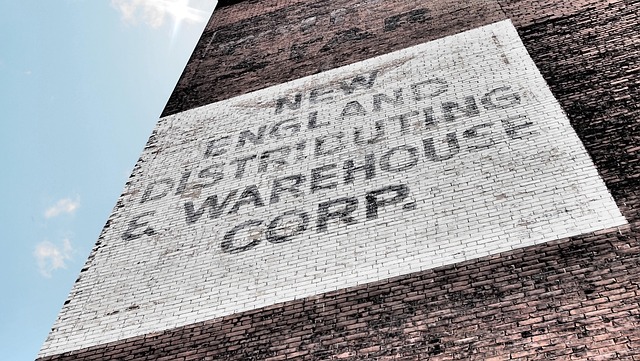Effective IT asset disposal in Boston and New York is crucial due to stringent local regulations for e-waste management and data destruction. Organizations must engage reputable specialists following industry standards and local laws, utilizing methods like Secure Erase for permanent data erasure. Physical shredding, computer recycling, detailed documentation, and asset lifecycle management are essential strategies to protect sensitive data, maintain compliance, and promote eco-friendly practices in IT waste disposal in both cities.
In today’s data-driven world, ensuring secure IT asset disposal is paramount to protect sensitive information. This article explores critical aspects of data protection during disposal, focusing on Boston and New York’s regulatory landscape. We delve into secure erase methods, including the gold standard of data destruction, and examine physical destruction techniques for IT assets. Additionally, best practices for documenting procedures and managing asset lifecycles are highlighted to prevent data breaches in these bustling metropolitan areas.
- Understanding Data Protection Laws in Boston and NY
- Secure Erase: The Gold Standard for Data Destruction
- Physical Destruction Methods for IT Assets
- Best Practices for Documenting Disposal Procedures
- Preventing Data Breaches Through Proper Asset Lifecycle Management
Understanding Data Protection Laws in Boston and NY

In cities like Boston and New York, data protection during IT asset disposal is paramount due to stringent local regulations. Both states have strict laws governing the handling of electronic waste (e-waste), including proper disposal and data destruction methods. These rules are in place to safeguard sensitive information from falling into unauthorized hands, particularly as digital technologies continue to permeate various sectors.
For organizations looking to dispose of IT assets in Boston or New York, understanding these regulations is crucial. This involves engaging the services of reputable data destruction companies that adhere to industry best practices and local laws. In Boston, e-waste drop-off locations are readily available, facilitating responsible disposal. Similarly, NYC offers robust infrastructure for proper IT waste collection, ensuring environmental protection and compliance with data protection laws.
Secure Erase: The Gold Standard for Data Destruction

Secure Erase is considered the gold standard for data destruction in the realm of IT asset disposal, whether in Boston or New York. This process goes beyond simple formatting, ensuring that all data is permanently and irrecoverably erased from storage devices. It’s a meticulous method that involves specialized software to overwrite and clear data trails, making it nearly impossible for unauthorized access.
For businesses looking to dispose of IT assets responsibly and ensure comprehensive data protection during disposal, electronic waste management services in Massachusetts offer Secure Erase as a robust solution. This approach not only safeguards sensitive information but also aligns with best practices in e-waste drop-off locations Boston and beyond, contributing to responsible electronic waste management across the region.
Physical Destruction Methods for IT Assets

When it comes to data protection during disposal, especially for sensitive IT assets, physical destruction methods play a crucial role in ensuring information security. Organizations in Boston and New York, often burdened with strict compliance regulations, must employ robust strategies to safeguard data. One of the most effective approaches is physical shredding, where IT equipment like computers, servers, and mobile devices are thoroughly shredded into unrecognizable pieces, rendering any data stored within indecipherable. This method is particularly vital for businesses dealing with confidential client information or critical trade secrets.
Furthermore, computer recycling initiatives in NYC and Massachusetts offer an eco-friendly solution while ensuring secure data destruction. Reputable recycling programs employ specialized techniques to wipe clean hard drives and other storage media, preventing unauthorized access to erased data. These initiatives not only promote sustainable practices but also contribute to the efficient tech garbage removal process, ensuring that IT assets are recycled responsibly and securely.
Best Practices for Documenting Disposal Procedures

When it comes to IT asset disposal in Boston or New York, proper documentation of disposal procedures is paramount. Organizations should establish clear and detailed guidelines that outline the steps for disposing of various types of assets, including computers, servers, mobile devices, and other electronic equipment. This process should begin with a thorough inventory check, ensuring an accurate count and condition assessment of each item. All data destruction methods, such as secure wiping or physical destruction, should be documented to verify their effectiveness.
Additionally, implementing old tech disposal guidelines and information technology garbage collection practices can help ensure compliance with environmental regulations and data security standards. For large-scale operations involving mass electronic device destruction, it’s crucial to have a systematic approach. This includes employing specialized services that adhere to industry best practices, providing certificates of destruction, and maintaining transparent records throughout the process.
Preventing Data Breaches Through Proper Asset Lifecycle Management

Proper asset lifecycle management is a cornerstone of preventing data breaches during IT asset disposal in Boston and New York. It involves tracking hardware from acquisition to eventual retirement, ensuring all sensitive data is securely erased or destroyed at each stage. This proactive approach goes beyond mere compliance with regulations like GDPR or state-specific e-waste laws; it safeguards against unauthorized access, data theft, and identity fraud that can arise from unsecured IT assets.
By partnering with reputable technological byproduct removal services in Massachusetts, organizations can leverage the expertise of e-waste management specialists who specialize in secure data protection during disposal. These professionals employ advanced techniques such as degaussing, shredding, and data wiping to ensure no trace of sensitive information remains on retired hardware. This comprehensive approach is essential for maintaining customer trust, preserving brand reputation, and adhering to legal obligations related to data protection during disposal.
When it comes to IT asset disposal in Boston or New York, adhering to stringent data protection laws is non-negotiable. From understanding local regulations to implementing secure erase protocols and employing physical destruction methods, every step of the process requires meticulous care. Following best practices for documentation ensures transparency and compliance. Ultimately, prioritizing data security throughout the asset lifecycle is key to preventing costly data breaches and safeguarding sensitive information in both urban centers.














